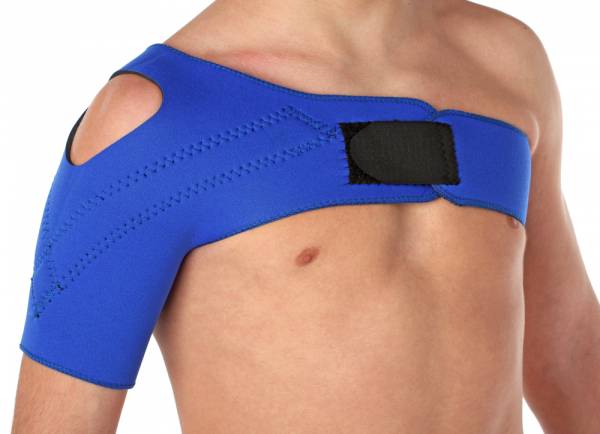I was sitting at the computer one day, looking over Facebook, when I noticed a friend had posted about his shoulder problems. It got me thinking and I wondered what I could do to help him. Well, the distance has been an issue, but what I was able to do was provide him with questions to ask his physician as he attempts to return to full duty. So, I began to think more about what questions a person should ask their physician in regards to various types of shoulder injuries, from acute to overuse.
Most people do not like going to a physician unless it is absolutely necessary. Athletes, especially, really dread going to the physician and hearing those deathly words “surgery,” “rest,” “physical therapy,” and “avoid your sport.” Hopefully, a few of these questions I am providing may help to ease the stress, strain, and anxiety of discussing a shoulder injury for the first time and help you get back to your active life.
Rotator Cuff Strain
One of the most common injuries is going to be the rotator cuff strain, which if left untreated, can turn into a complete tear. Just look at professional baseball players and the number who have had surgery.
Once a physician has said rotator cuff, begin to think of questions that affect that particular activity. For example, “What is the recommended treatment?” From there, questions that can be asked include “What type of physical therapy will be needed?” and “How long will I be in therapy?”
The scary part for many is approaching the subject of imaging and further diagnostic testing. My suggestion is, if the physician doesn’t recommend it right away ask why. Ask “How long do I try therapy before we do more testing?” Sometimes, physicians are hesitant to begin with imaging and try to take a more conservative approach. If you are that concerned, you can push the issue or ask for another opinion. Personally, I think pushing the issue may be the best initial approach.
Dislocation/Subluxation of the Shoulder
Another injury that happens quite frequently is the dislocation or subluxation of the shoulder. Here is where it gets tricky. A shoulder dislocation can cause damage to so many structures within the shoulder that the treatment is widely variable. Structures that can be injured range from the musculature to the ligaments to the labrum. All of these structures incorporate similar yet different physical therapy components.

This is when it is important to ask the appropriate questions. First and foremost, ask about immobilization. How long will the shoulder need to be immobilized before physical therapy can begin? What are the short-term effects of being immobilized? What activities can I do while in the sling? Will there be additional imagining, such as an MRI? What are my limitations at work and/or in regards to activity? The fear people have is hearing the worst – that you can’t do anything. In most cases, physicians are willing to work with you on certain limitations, especially when it comes to work.
Remember, a dislocation will take some time to recover. Be patient, but be proactive at the same time. If you don’t understand what is being said, ask the physician to slow down and explain in terms that you understand. The worst feeling is leaving the office and not knowing what was said.
Shoulder Surgery
A dislocation or subluxation can lead to a worse scenario – surgery. That is most likely the worst word any person wants to hear. Believe me, I know. I have had four knee surgeries, one hand surgery, and one ankle surgery. Yes, the orthopedist likes to see me walk into the office.
When there is the chance the topic of surgery will be approached, go prepared with questions. Most importantly, find out what type of procedure will be used. Ask the physician to explain it. Then, find out what the risks are that are involved with surgery. What is the success rate of the procedure? A key question for people today is, “How much work am I going to have to miss?” The younger athlete may ask, “How long I am going to be out of my sport? Will this affect my chances of a scholarship?” These are all valid questions to consider when deciding on the course of action.
It even comes down to whether or not you want to do surgery with that physician. You have the right to a second opinion. Get it. If surgery is something that may affect your career, ask for a second opinion. You never know, maybe the other physician has a better procedure or has other options. It never hurts to check it out, especially when it can affect your livelihood.
Listen Carefully
The last bit of advice I can give is to listen carefully to what the physician is saying. Why? As the physician explains the injury, surgical procedure, or physical therapy, you may come up with additional questions that I didn’t include. If the questions are open-ended and require more than a yes/no answer, you should be able to go through a whole series of questions that will help you to ultimately get the answer for which you are looking.
Always ask, even if you think it is not important, if you are thinking about it then it is important to you. It’s your shoulder. It’s your health.
You might also like How To Self-Diagnose Your Shoulder Pain and this list of articles how to prevent and treat shoulder injuries.






